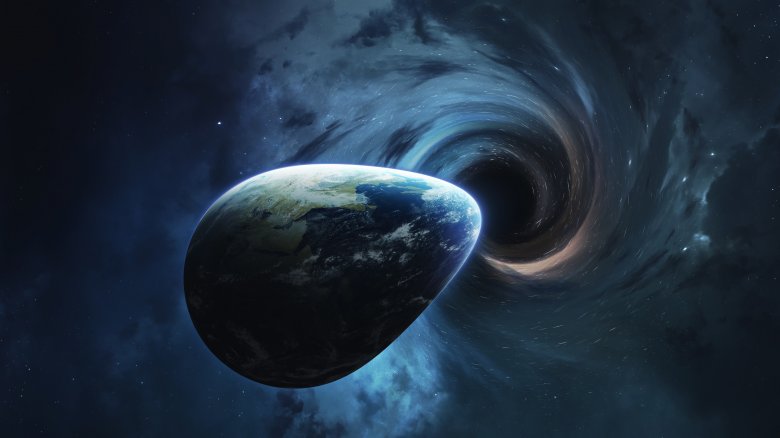Could A Black Hole Destroy Earth?
Black holes are painted as the ultimate symbols of desolation in our cosmos. They are the cosmic creeps to be avoided at interstellar cocktail parties, just seeming to suck all the energy out of the universe's living room.
NASA states that these dismal voids are formed when stars collapse, similar to a paparazzi's career, and boast gravitational pulls stronger than Donald Trump's handshake. Nothing can escape their vice-like grips.
Thankfully, among the many ways humanity could be snuffed out by interstellar goings-on — check your favorite sci-fi movies for examples — getting sucked into a black hole doesn't rank too highly on the list. For now. In this TED-Ed piece, theoretical astrophysicist Fabio Paccuci states that our odds of being sucked into one are low, mostly due to the size of the universe (because it's very, very big).
Paccuci describes two general types of black holes: stellar and supermassive. Stellar black holes are usually around 300 km across, meaning they'd have to enter our solar system to begin affecting Earth with their gravitational pull. If they did, we'd be in trouble. But despite there being a few hundred million stellar black holes in our galaxy according to the Harvard-Smithsonian Center for Astrophysics, the odds of this happening are "miniscule," to quote Paccuci.
Supermassive black holes, meanwhile, can be billions of times the size of our sun, according to Space.com, and lie at the center of most galaxies, including our own Milky Way. And so long as we remain in our current stable orbit around it, Paccuci says, we run no risk of falling in. However, he does note that if our orbit were to be thrown off, it could send us on a collision course with the universal equivalent of a Dyson vacuum.
So, while any black hole could easily disintegrate Earth and humanity if we came close enough, the odds that this will happen anytime remotely soon are very low, and should not be worried about day to day. Go live your life!
